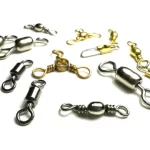Chris Winkler, a 65-year-old fisherman from Montauk, N.Y., was sentenced to 30 months in prison for his involvement in a conspiracy to harvest and sell fluke and black sea bass far beyond legal limits. This sentence follows a conviction in October by a Long Island jury on charges of overfishing, falsifying records, and selling the illegal catch to various buyers.
Winkler, captain of the 45-foot trawler “New Age,” was found guilty on five counts, including criminal conspiracy, mail fraud, and obstruction of justice. His illegal activities involved partners at Gosman’s Dock in Montauk and dealers at the Fulton Fish Market in the Bronx. Sentenced by Judge Joan M. Azrack of the Eastern District of New York, Winkler is set to surrender in December.
“This is a serious crime,” Judge Azrack stated, emphasizing how Winkler’s actions compromised the integrity of fisheries management. In the courtroom, Winkler appeared solemn and occasionally emotional, surrounded by supporters from Montauk.
Richard W. Levitt, Winkler’s lawyer, did not comment on the sentencing. However, the case has highlighted ongoing tensions between Long Island’s fishermen and federal regulators. Fishermen argue that current quotas are outdated and unfair, while federal authorities stress the importance of these regulations to preserve fish populations.

The federal government has increasingly pursued criminal prosecutions to enforce fishing regulations, with Winkler’s case being one of several similar cases in recent years. Other Long Island fishermen have also faced prison sentences for overfishing fluke.
Montauk, a village at the eastern tip of Long Island, retains its working port amidst gentrification and serves as a fishing hub. Gosman’s Dock, a prominent supplier of fresh fish since 1943, was central to Winkler’s illegal operations.
In 2021, Winkler was indicted alongside Bryan and Asa Gosman, who managed a wholesale company. The Gosmans pleaded guilty and testified against Winkler, admitting to helping him evade law enforcement. Winkler’s case involved fishing trips between 2014 and 2017, during which he exceeded legal limits by harvesting at least 200,000 pounds of fluke and 20,000 pounds of black sea bass. The over-quota fish were worth nearly $900,000 on the wholesale market.
Prosecutors emphasized the need to preserve fishery resources for future generations, while Winkler’s defense argued that the case was built on outdated quotas. Levitt described the regulatory system as irrational and requested leniency, portraying Winkler as a dedicated seaman who respected his profession and community.
In court, Winkler acknowledged his crimes and expressed deep remorse, though he maintained that the fluke stock was robust. Despite his contrition, the court handed down a firm sentence to underscore the importance of adhering to fishing regulations.
Winkler’s case serves as a stark reminder of the ongoing struggle to balance commercial fishing interests with the need to protect marine resources.
Image/Source: NYTimes





